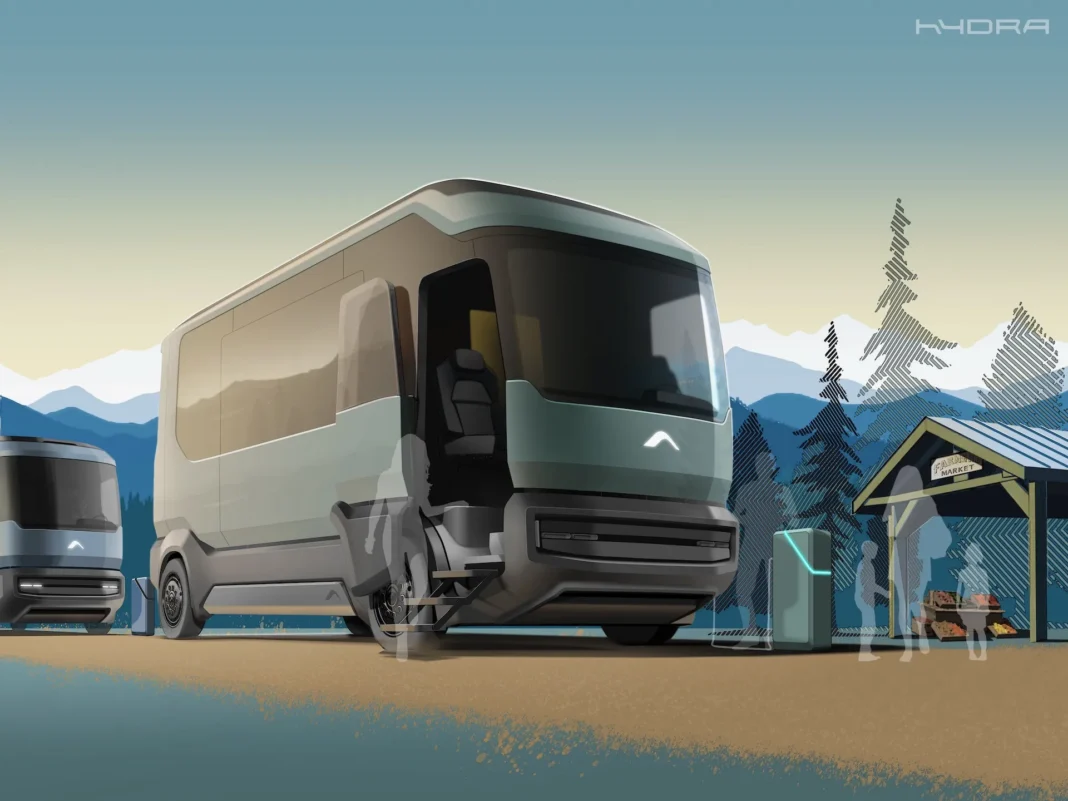A pair of California-based companies plan to unveil a prototype electric RV at the 2025 Consumer Electronics Show (CES) next month.
The vehicle, officially styled as an “AI Transformable Home” (AI-TH), was announced at CES 2024 this past January by startup AC Future. That firm has since partnered with Hydra Design Labs which, says it specializes in design, fabrication and prototyping for the auto industry to move the idea closer to production readiness.

Rendering of AC Future AI-TH electric RV
The vehicle is designed to provide 400 square feet of living space with a slide-out section similar to conventional RVs, along with “complete off-grid capabilities, including solar charging, water generation, and internet connectivity,” the AC Future said.
The prototype being shown at CES 2025, which was built by Hydra Design Labs, will be a more refined version of the initial concept that debuted at the 2024 show, according to AC Future. But the startup still hasn’t confirmed a production timeline.

Rendering of AC Future AI-TH electric RV
Other companies are working on electric RVs. RollAway, for example, aims to rent out luxury RVs made from General Motors BrightDrop electric vans. But RVs also face steeper range and charging challenges than electric cars, due to both the need to extract lots of range from an inefficient package and the lack of high-power charging infrastructure at campsites and RV parks.
Plug-in hybrids might be a better solution, something Airstream’s parent company Thor Industries is already investigating. Battery-powered travel trailers that can help propel themselves, such as the Lightship AE.1 Cosmos Edition due to start production in mid-2025, can also help make zero-emission camping more practical, albeit with the need for a tow vehicle.
